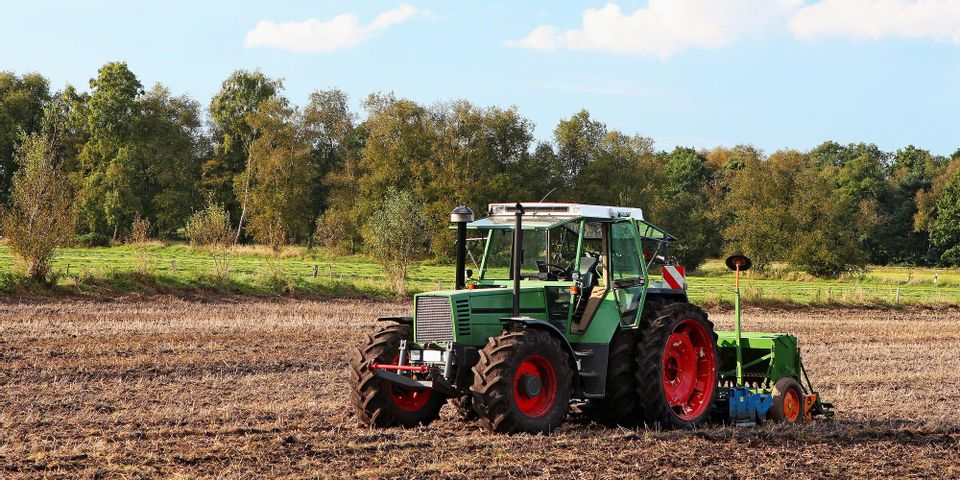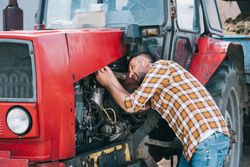
Tractors are made to handle continual operation while bearing loads over extended periods of time, and their radiator design is efficient in keeping their engines cool. However, overheating can occur in certain instances. Below are some of the reasons why.
What Causes a Tractor to Overheat?
1. Radiator Malfunction
Radiators are needed for delivering clean air to the motor, which is why a dirty radiator can cause overheating. Grime on cooling blades prevents air from getting through, leading to higher temperatures in the engine. Another area to watch for is the lower radiator hose where the water pump grabs the coolant. The spring here can fail, leading to a hose collapse and not enough coolant pulling through.
2. Thermostat Issues
 The engine is in danger of getting too hot If the thermostat cannot accurately check the temperature. Thermostats open and close by using a spring that pushes open their venting door when they’re warm, and it contracts when the engine is cool. However, thermostats that fail to open to let the coolant cool the radiator down will trap heat in the engine, leading to overheating. Sometimes the thermostat is installed incorrectly and misreads the temperatures, so make sure the spring is tight and facing toward the engine while right side up so that it reads the heat correctly.
The engine is in danger of getting too hot If the thermostat cannot accurately check the temperature. Thermostats open and close by using a spring that pushes open their venting door when they’re warm, and it contracts when the engine is cool. However, thermostats that fail to open to let the coolant cool the radiator down will trap heat in the engine, leading to overheating. Sometimes the thermostat is installed incorrectly and misreads the temperatures, so make sure the spring is tight and facing toward the engine while right side up so that it reads the heat correctly.
3. Not Enough Coolant
Coolant is a vital fluid for regulating temperatures as the tractor operates, but your equipment is in danger of overheating when levels are too low. Usually, coolant loss occurs when there is a leak from corroded tubes or damaged sealing gaskets. Too much air will also get in through openings, leading to air pockets that prevent the remaining coolant from moving through. Steam can also form due to the combination of heated moisture and air, creating hot spots that raise the engine's temperature.
4. Water Pump Damage
Since the water pump transports the coolant to the engine, it is vital for delivering necessary fluids to balance temperatures. Damage to the pump can occur, which typically includes loose belts, worn bearings, or cracked seals that develop with use. When this happens, coolant cannot travel, causing overheating and sometimes a coolant leak. If this chemical gets into the ground, it can contaminate the soil and groundwater.
5. Low Engine Oil
Engine oil is essential for lubricating moving parts in the engine. Without it, friction increases, generating excess heat and raising the temperature. Besides overheating, engine components can become severely damaged from scraping against one another without lubrication.
For malfunctioning radiators in St. Louis, MO, call American Radiator. The expert team brings almost 80 years of combined experience to every repair and rebuild, including tractor radiator repair, fuel tank repair, and DPF cleaning. Their specialization in tractors, big rigs, and other contractor equipment ensures your heavy-duty cooling needs are met. Call (314) 725-3357 for more on their options or visit their website for their gallery.
About the Business
Have a question? Ask the experts!
Send your question

